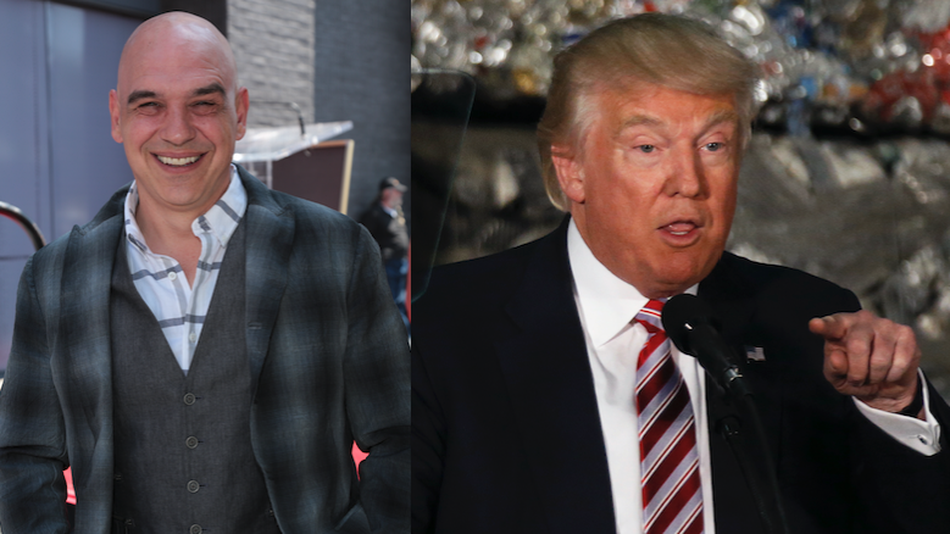Hezbollah is 'terrorist' group for Gulf States
Mar 07, 2016
In the struggle between Saudi Arabia and Iran , the government in Riyadh has achieved a diplomatic success. The Emirates previously labeled regional Hezbollah affiliates with similar designations.
Chris Rock tackles #OscarsSoWhite controversy in monologue
Mar 07, 2016
The comedian poked fun at Hollywood's " sorority " racism, claiming that all black actors want are the "same opportunities". Lastly I just want to say this: [Vaping is] about man's relationship to the natural world...
Van Gaal lament 'not necessary' United defeat
Mar 07, 2016
Former Aston Villa striker Benteke was adamant he had been floored, saying: "I believe he touched me, otherwise I don't go down". Tony Pulis looks certain to guide Albion to safety and they are just a point away from his pre-season target of 40 points.
Chris Rock's Oscars 2016 Opening Monologue Skewers Oscars So White Backlash
Mar 07, 2016
But, I realized, they're gonna have the Oscars anyway. " They're not going to cancel the Oscars because I quit, " he joked. It's the 88th Academy Awards, which means this "no black nominees" thing happened at least 71 other times.
'Don't come to Greece', migrants warn on Greece-Macedonia border
Mar 07, 2016
This ultimately means that the high numbers we are still witnessing have to go down, and quickly so. His comments widened a recent rift between Merkel and her Austrian counterpart, Werner Faymann.
Peyton Manning to retire after 18 NFL seasons
Mar 07, 2016
What happened over the next three years cemented his status as the greatest player in Tennessee football history. The nearly 40-year-old Manning goes out as a champion just a month after Denver beat Carolina for the title .
Conor McGregor suffers shock defeat to Nate Diaz
Mar 07, 2016
Conor McGregor has vowed to continue his attempt to dominate multiple UFC divisions, despite his shocking defeat to Nate Diaz. And how insane is it that out of the three fights between Tate and Rousey, Tate is the one to enter two of them as champion.
Dog pops up in driver's seat when semi crashes in Minnesota
Mar 07, 2016
The golden Labrador retriever was alone in the vehicle in Minnesota, United States, at the time so he is the prime suspect. A semi truck that was parked and idling with a dog inside suddenly went into gear and struck a tree and parked auto .
Leonard scores 30 and leads Spurs past Pelicans, 94-86
Mar 07, 2016
The contest will mark the start of a two game road trip for Detroit and a single home game for San Antonio . This is my first year here, but even for me it's not about that. "I thought if I don't play, I don't care".
Sudanese Islamist leader al-Turabi dies at 84
Mar 07, 2016
Turabi held a master's degree in law from London and a doctorate from Sorbonne University in Paris. Born the son of a religious judge in 1932, al-Turabi was a lifelong scholar of Islam.
Citizens Blow Past Aston Villa 4-0
Mar 07, 2016
The consolation for Villa was that none of their relegation rivals - Newcastle , Norwich or Sunderland - managed to win. Manchester City is now fourth in the Premier League with 47 points having won 14 games, drawn 5 and lost 8.
Studies strengthen link between Zika virus, birth defects
Mar 07, 2016
Numerous infected cells died, and others showed disruption that could limit their ability to divide and flourish. Latin America and the Caribbean have been hit with mosquito-borne Zika outbreaks in the past year .
Trump calls on Rubio to drop out of presidential race
Mar 07, 2016
Sanders had events in OH on Saturday as the Democrats kept close watch on those two big states and their upcoming delegate hauls. Ted Cruz, R-Texas, argue during a Republican presidential primary debate at Fox Theatre, Thursday, March 3, 2016, in Detroit.
EPL leader Leicester City held to draw
Mar 07, 2016
I expect more games like this, teams coming here with five defenders. We tried to do everything and well done to my players".
Wally Masur plays down Bernard Tomic, Nick Kyrgios spat
Mar 07, 2016
The tweet was later removed before Kyrgios followed up with: "Heat of the moment, not gonna take it personally". Kyrgios later fired back on Twitter , telling Tomic he would not have his back anytime soon.


